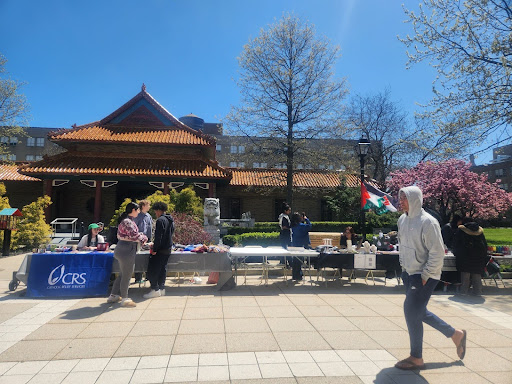College students are stereotypically overworked and underpaid, or not paid. Almost all will claim to be “broke” at some point during their academic career. Rather than focusing on career and income, undergraduates should be using their time to take part in unique experiences and learn about themselves and what they want to do with the rest of their lives.
Many students are able to find these invaluable experiences by joining university organizations, such as sororities and fraternities, student publications and media outlets, and student government associations. These groups allow students to network with their peers and, in many cases, gain hands-on experience in their chosen field.
Typically, journalism majors flock to the newsrooms of their university’s paper, hoping to gain the necessary experience to aid them in real-world work situations. Similarly, students interested in government, even only casually, tend to flock to the student council groups, hoping to gain participatory experience with a legitimate governing body. In many cases these students are some of the best the university has to offer, willing to balance schoolwork, part-time jobs and extracurricular activities without any incentive other than their own betterment.
Yet in an attempt to encourage participation in at least one organization, Student Government, Inc., recently passed an amendment to their constitution that allows members of the executive board to receive stipends during their term. Other universities have instituted similar plans, including Florida State, Wichita State and North Carolina Central, offering SGI executive members some form of compensation.
Allotting funds to monetarily reward SGI members raises a number of issues, one being: what makes the members of SGI more deserving of payment than any other campus leaders?
Student leaders from numerous other organizations are just as hardworking, if not more so. The amount of work that goes into running a successful organization can often be equivalent to the work that goes into a full-time job. What, then, makes the leaders of SGI deserving of pay while the rest of the campus leaders are left without reward, and often without thanks, for all that they do?
In addition, while the stipend for e-board members of SGI has not yet been given a definite amount, it will likely not be substantial. Whatever monetary reward is given, it will likely not be enough to cover a few months’ rent, allow students to give up their part-time jobs, or even make a dent in their annual cost-of-living expenses. If the purpose of the proposal is to offer a monetary reward for service, , it should be equivalent to the pay that would accompany a full-time job or it should not be offered at all.
Finally, while the offer of a stipend could increase the number of students interested in taking on the responsibilities of Student Government leadership, it could also lead to a lower quality candidate. The promise of payment could attract students who are more interested in drawing a “paycheck” than in doing the necessary work to maintain the organization. And while SGI has had problems attracting members in the past and making themselves known, it appears SGI is willing to sacrifice its credibility in an effort to increase membership.
















